Dusty cardboard displays make my premium products look tired. Shoppers stroll past without stopping. When I swap them out on a schedule, I reset curiosity and restore sales energy.
Displays must change often because shoppers adapt fast; a fresh layout resets attention, protects brand image, prevents wear, and keeps promotions aligned with season and stock.
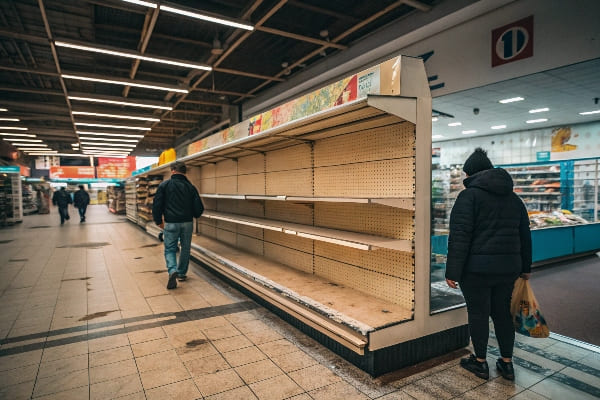
A stale display drains revenue quietly. The next sections break down why steady care matters and how I keep each unit looking new without blowing the budget.
Why is it important to maintain displays?
A loose shelf corner or faded print whispers “low quality.” That small flaw can spread doubt across my whole range of products.
Maintained displays signal reliability, extend lifespan, and keep products safe and visible, turning curious people into confident buyers.

Hidden Costs of Neglect
When a support tab bends, the box under it sags. That shift pulls labels out of sight. I lose impulse sales1 in minutes. Fixing it later costs staff hours and carton replacements that bite into margin.
Visible Gains of Care
Small weekly checks catch scratches before they grow. I wipe, tighten, and rotate stock. Graphics stay sharp, and the structure stands firm under weight.
| Maintenance Task | Time Needed | Benefit |
|---|---|---|
| Dust and wipe surfaces | 2 min per unit | Brighter colors draw eyes |
| Tighten locking tabs | 1 min | Prevent collapse |
| Replace worn headers | 5 min | Keep brand story clear |
A disciplined routine keeps my displays in service longer, which lowers replacement bills and lets me spend more on fresh creative designs2 from our Popdisplay studio.
Why is display maintenance important?
Customer trust is fragile. If a stand looks weak, buyers may worry my crossbows are weak too.
Display maintenance protects brand trust, avoids product damage, and meets retailer safety rules that guard against fines or removal.
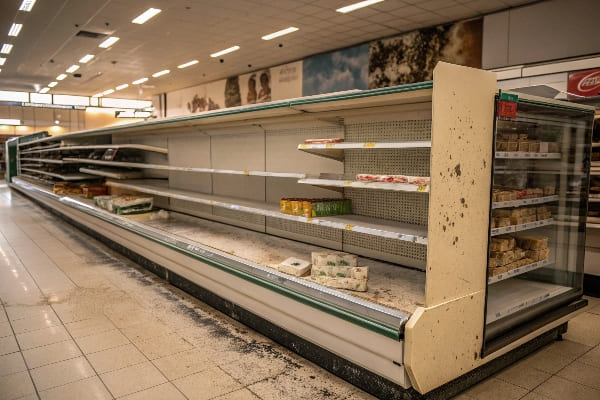
Retailer Rules and Risk
Big chains in the United States inspect fixtures weekly. A frayed edge can trigger a compliance ticket. Remove it in 24 hours — or lose the slot. I learned this early when one store hid my whole pallet behind curtains until I swapped in a fresh unit. That one lapse cost me a weekend of sales.
Brand Equity3
Clean lines and crisp print tell a story of precision. That story must stay true through the last day of a promo. If colors fade, hunters doubt my camouflage paint. Regular polish4 keeps perception high and supports repeat orders.
| Risk | Impact | Preventive Action |
|---|---|---|
| Faded UV ink | Brand colors shift | Rotate display away from direct light |
| Bent hooks | Product falls | Use thicker flute board |
| Loose price tags | Wrong charge | Secure with clear adhesive labels |
Maintenance is not a chore; it is brand insurance that costs pennies.
Why is it important to maintain promotional displays and ticketing throughout the promotion?
A promotion lives on urgency. Out-of-date tickets kill urgency fast.
Active upkeep keeps price tags correct, stock full, and messaging consistent so the promotion delivers peak profit day after day.
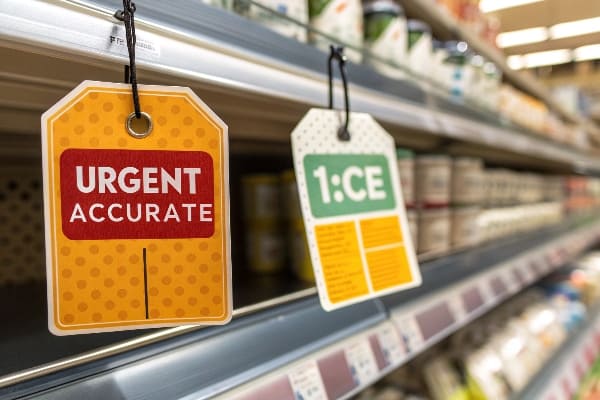
Timing Is Everything
My crossbow launch runs four weeks. Week one pushes full price. Week three adds bundle savings. I print two header sets in advance and schedule a mid-campaign swap. This avoids sticker confusion and meets advertising standards.
Accurate Data
Shoppers grab their phones the moment they see “SAVE 20%5.” If they scan and find no match, trust drops. I update QR codes6 and barcodes so every scan lands on the right landing page.
| Promotional Element | Frequency to Check | Reason |
|---|---|---|
| Price tickets | Daily | Prevent outdated offers |
| QR codes | Launch + mid-run | Align with online deal |
| Stock levels | Twice daily | Avoid empty hooks |
By guarding these details, I turn each display into a silent salesperson who never lies about price.
How do you maintain a display?
Many people ask me for a magic spray. The truth is simpler: a list, a kit, and discipline.
Maintenance requires a short checklist, gentle cleaning tools, quick structural checks, and timely graphic replacements carried out on a fixed routine.
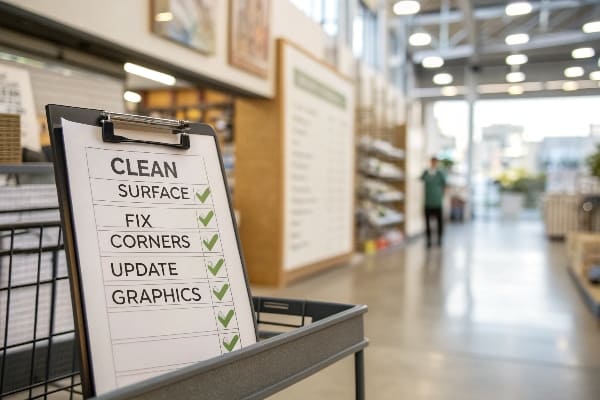
My Four-Step Routine
Inspect\
I walk the aisle with a flashlight and look for sagging shelves or scuffed edges.Clean\
I wipe dust with a microfiber cloth7 and a mild cleaner that will not damage water-based inks.Secure\
I push every locking tab, tighten any screws on spin racks, and add fresh tape where needed.Refresh\
I swap worn headers and price tags. I reorder replacement parts from our Guangzhou plant8 when stock runs low.
| Tool | Purpose | Cost |
|---|---|---|
| Microfiber cloth | Dust removal | $1 |
| pH-neutral spray9 | Stain cleaning | $3 |
| Spare headers | Graphic refresh | $0.50 each |
This habit takes ten minutes yet saves me from emergency rebuilds that can cost a day’s production.
What is the purpose of displays?
A display is not decoration. It is a silent deal closer that links interest to action.
Displays hold, highlight, and position products so customers notice, understand value, and decide to buy on the spot.

Jobs a Display Performs
Attention
Bright panels interrupt routine shopping paths.Education
Simple icons on the header explain draw weight or safety features in seconds.Navigation
Color-coded shelves guide hunters to youth bows or pro models.
| Purpose | Example Feature | Result |
|---|---|---|
| Grab attention10 | Gloss lamination | 30% more footfall |
| Teach quickly11 | Infographic side panels | Fewer staff questions |
| Drive trial12 | Touch-and-feel sample | Higher conversion |
Each role supports the next. Together they shorten the path from glance to purchase.
Why are window displays important?
A window is the first battlefield. Win there, and foot traffic follows.
Window displays create curiosity outside, set store mood, and promise solutions, pulling people across the threshold to explore products.
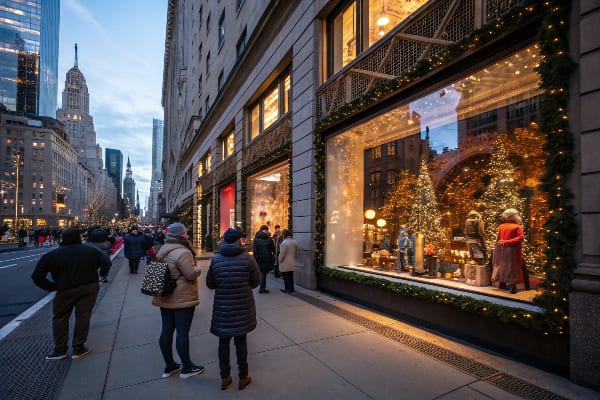
Outside In
When mall visitors see a deer track graphic and a bold “NEW QUIET LIMBS13” tag, they pause. That pause is my chance. I place a full-size cardboard elk silhouette beside the crossbow stand. Lights aim at the logo, not the glass, to avoid glare.
Storytelling Layers
I group the scene: hero product14 at center, supporting gear around, lifestyle image backdrop. A simple three-layer rule keeps focus clear. Rotating the scene each month keeps locals guessing what comes next.
| Window Element | Goal | Best Practice |
|---|---|---|
| Hero product | Inspire | Place at eye level |
| Lifestyle backdrop | Context | Use high-contrast print |
| Motion prop | Stop passersby | Add rotating target wheel |
A strong window15 cuts ad spend because it draws free traffic that a banner ad could never match.
Conclusion
Keep every display fresh, clean, and accurate; when they shine, sales follow.
Understanding impulse sales can help you optimize your display strategies and boost revenue effectively. ↩
Exploring the impact of fresh designs can inspire innovative strategies to attract customers and increase sales. ↩
Understanding brand equity is crucial for maintaining a strong market presence and ensuring customer loyalty. Explore this link to learn more. ↩
Regular polish is essential for brand upkeep. Learn about its benefits and how it can enhance your brand’s image. ↩
Explore this link to learn how to effectively use discount codes like ‘SAVE 20%’ to boost customer trust and sales. ↩
Discover how QR codes can enhance customer engagement and ensure accurate promotions in your retail strategy. ↩
Discover how microfiber cloths enhance cleaning efficiency and protect surfaces, making them a must-have for your routine. ↩
Explore the benefits of sourcing from Guangzhou, known for quality manufacturing and cost-effectiveness in parts supply. ↩
Learn about the significance of pH-neutral cleaners in maintaining the integrity of surfaces and preventing damage. ↩
Explore strategies that enhance customer engagement and increase foot traffic in stores. ↩
Learn how infographics can simplify complex information and improve customer understanding in retail settings. ↩
Discover how tactile experiences can boost customer confidence and lead to higher sales conversions. ↩
Explore this link to understand how NEW QUIET LIMBS can enhance your hunting experience with reduced noise and improved performance. ↩
Discover strategies for showcasing hero products that can significantly boost sales and customer engagement in retail settings. ↩
Learn about the elements that create a compelling window display, attracting more foot traffic and increasing sales opportunities. ↩

